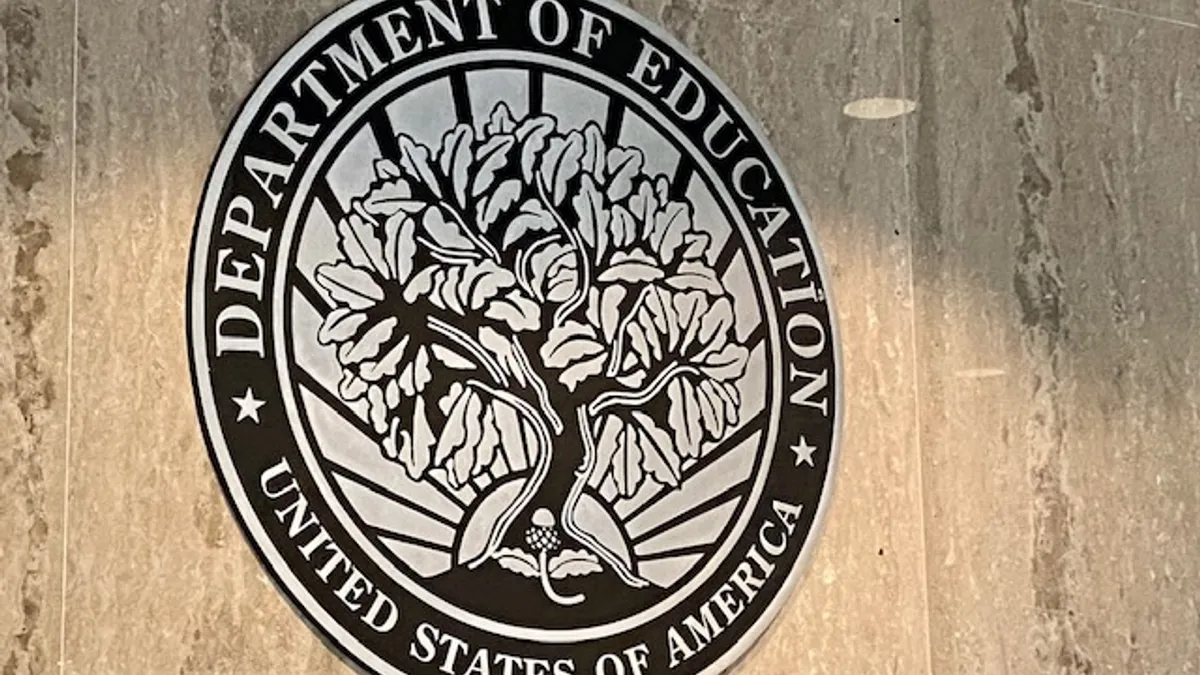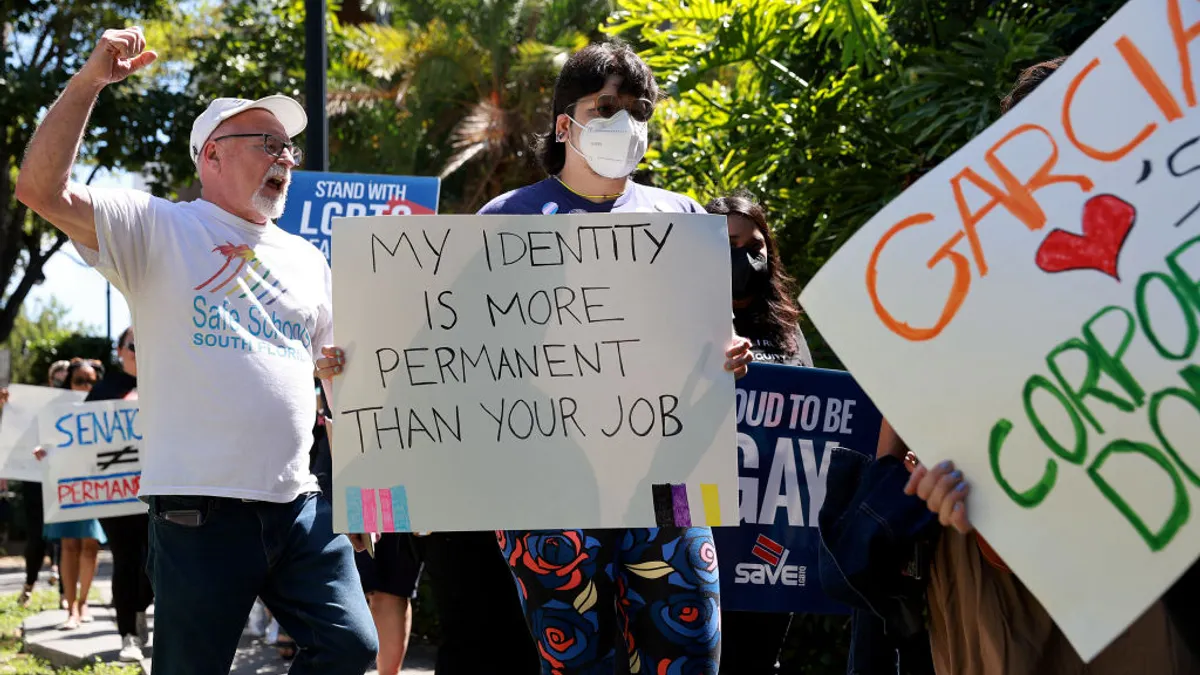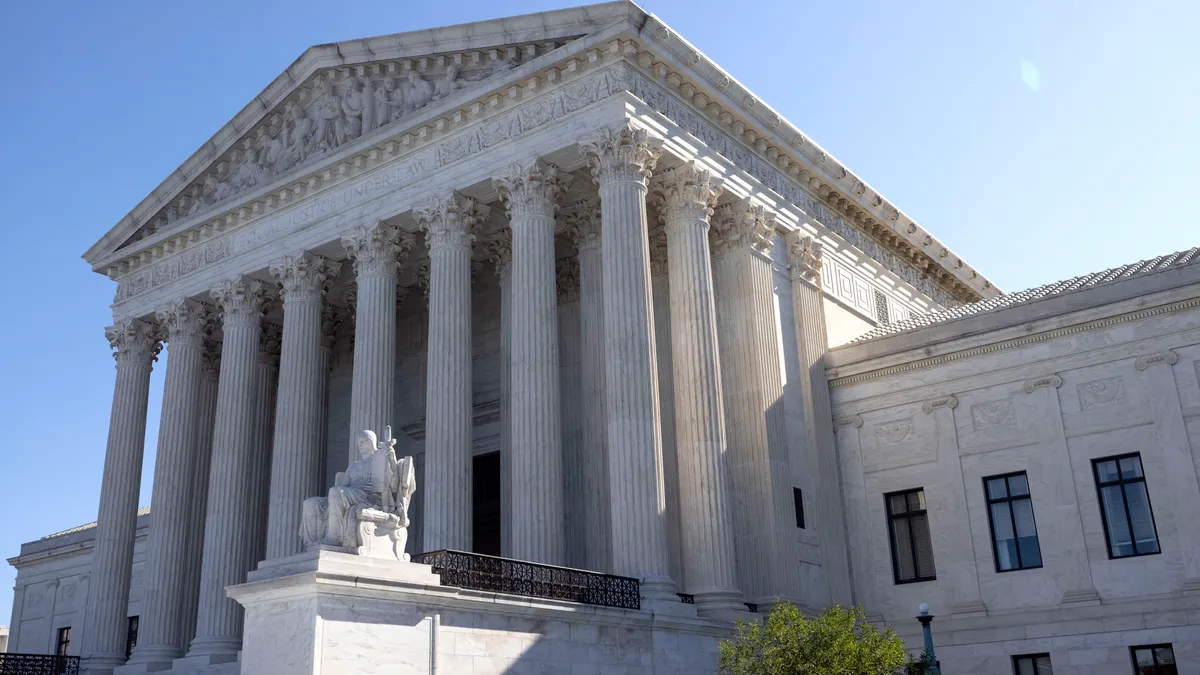Books about race discrimination and racial justice, courses on the history of a racial or ethnic group, and school programs or events meant to include or celebrate students from certain races, ethnicities or religions are — under certain circumstances — allowed under federal law, according to the Department of Education.
Such learning materials and programs would not raise civil rights violation concerns, according to a Dear Colleague letter the department issued Thursday. However, how states and local policies regulate curriculum and programs related to race is mostly out of the department’s hands, the letter said.
"It is the province of states, localities, and educational institutions to make determinations regarding curricular and programming choices, including academic course materials and related discussions," the Dear Colleague letter said.
The guidance was prompted by recent increases in the number of complaints and calls for help from school communities on the issue of race in school programs, the department said.
“Today’s resource shares with school communities practical guidance about whether and when federal civil rights laws permit — and in some cases require — schools to take actions related to race, as well as whether and when these same laws may require that schools not act based on race,” said Catherine Lhamon, Assistant Secretary for Civil Rights at the Education Department, in a statement.
The 18-page document includes many scenarios similar to those recently under scrutiny due to the spread of state laws restricting instruction and programs related to race and racism.
For example, the document says a public elementary school requiring all students to read a book about race discrimination and racial justice from a book list may not warrant investigation unless there are complaints from parents that the book created a racially hostile environment.
It also says course requirements — like mandating that students take a Mexican-American history course prior to graduation — would likely not spark a federal investigation if it does not create a racially hostile environment, even if the students find the class “subjectively offensive.”
Assemblies, meetings, focus groups or listening sessions to hear about students' experiences with race in the school or broader community are also usually not restricted by federal civil rights laws as long as students are not barred from participating in such events or groups as a result of their race.
For instance, a White parent's allegation that a school’s recognition of an African American Students Association as an extracurricular group is race-based discrimination may not spark an investigation if that student group welcomed all students — regardless of race — to participate in all of its meetings and events.
Many examples included in the guidance mirror concerns nationwide sparked by an increase in state and local laws restricting race-related curriculum in schools.
"OCR recognizes that schools, colleges, and universities that receive federal financial assistance from the Department may be subject to state or local laws, in addition to the federal laws that OCR enforces," the Dear Colleague letter said. "This guidance does not address state or local laws."
The impact of these varying laws have left educators wondering how to navigate race-related issues in schools, such as diversity trainings, curriculum related to racism, and extracurricular activities or events meant to create a more racially inclusive environment.
Many such programs have also come under scrutiny by district leaders, parents and teachers who are sometimes divided over the issue of race-related programming and curriculum in schools.
Earlier this year, Lhamon noted the high volume of racial hostility complaints in schools that OCR received in 2022. These contributed in part to a record high number of complaints logged by the Education Department's civil rights arm.





















